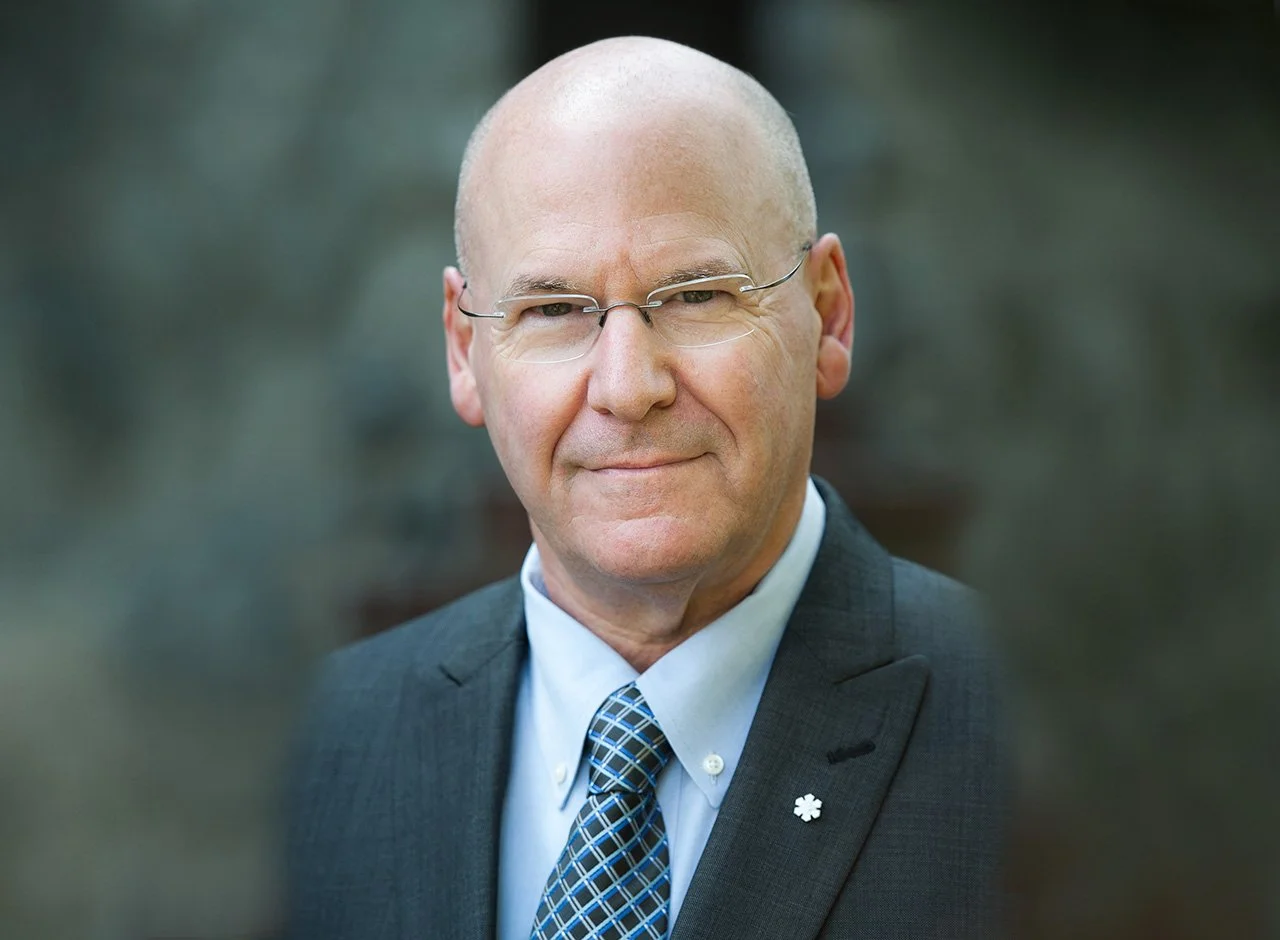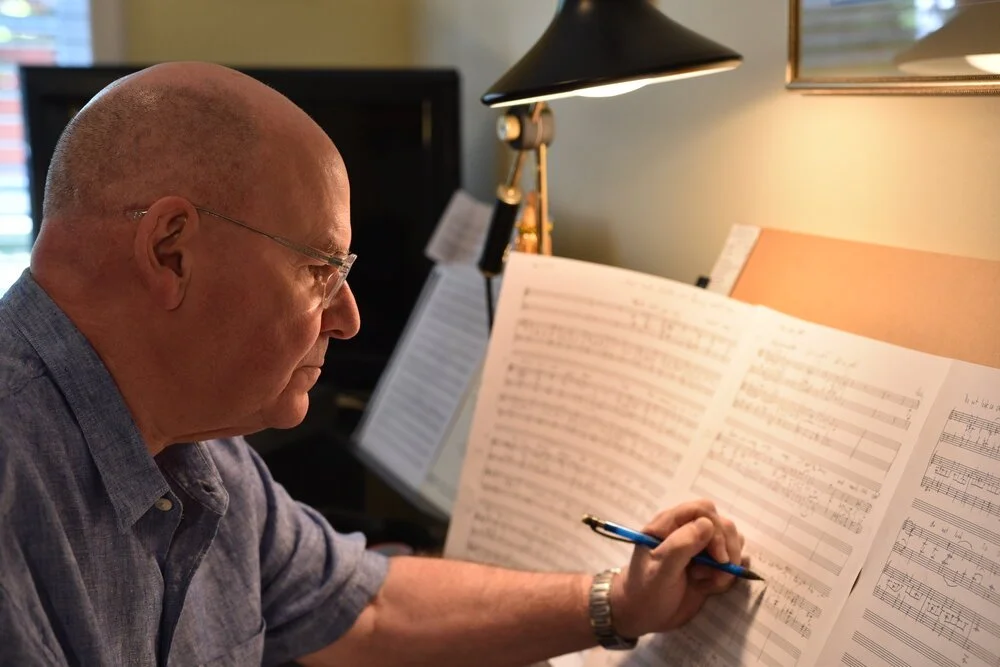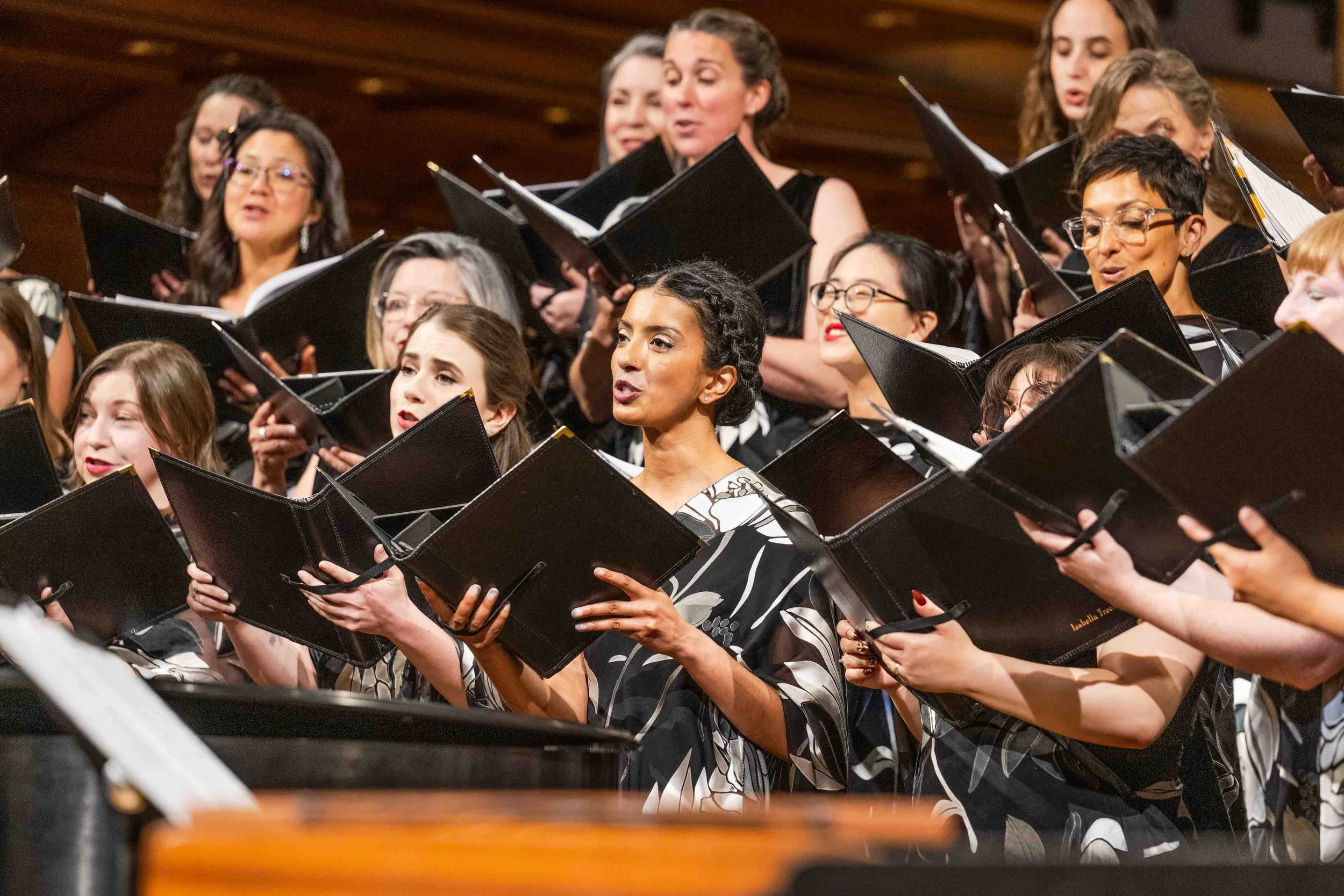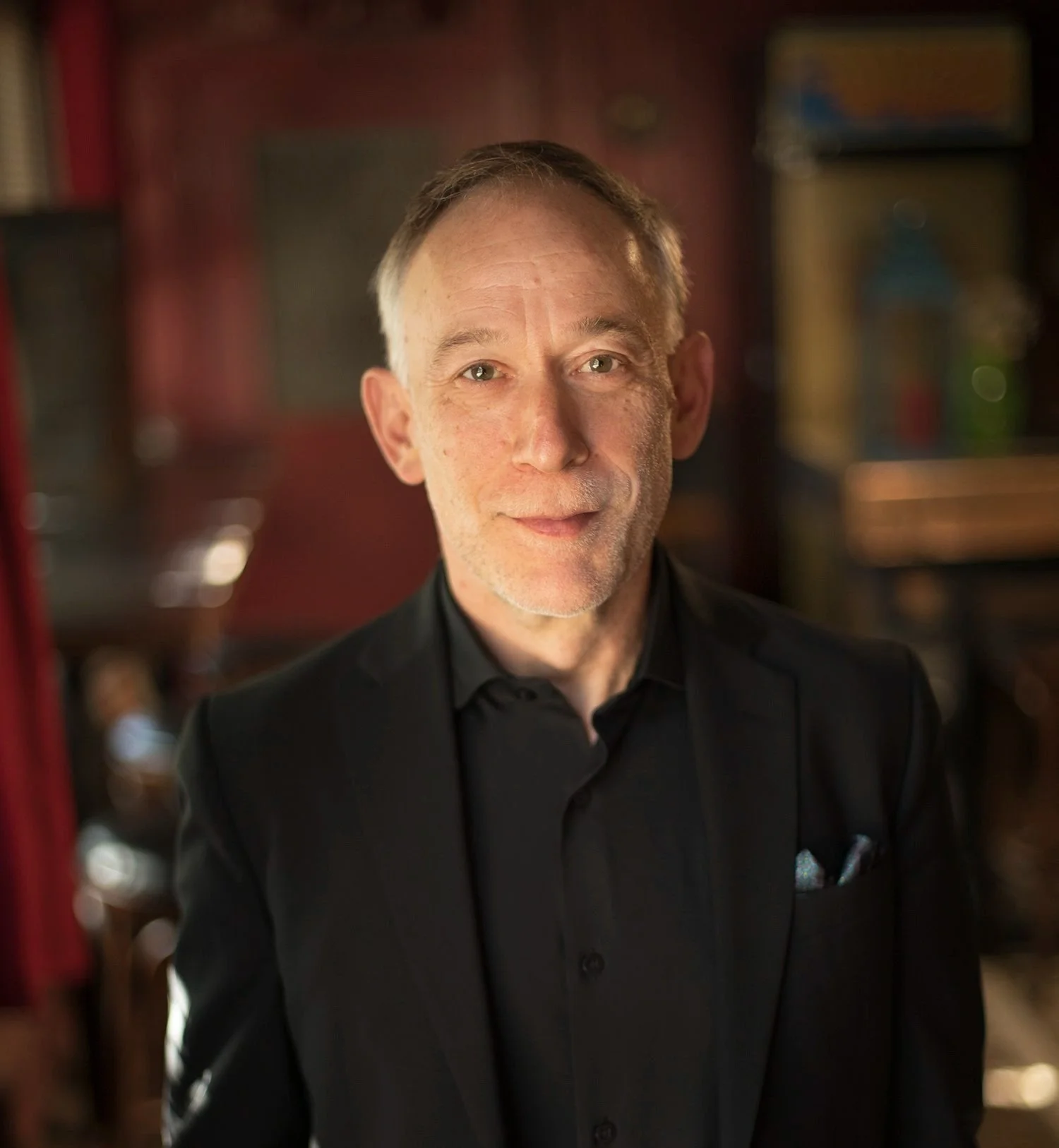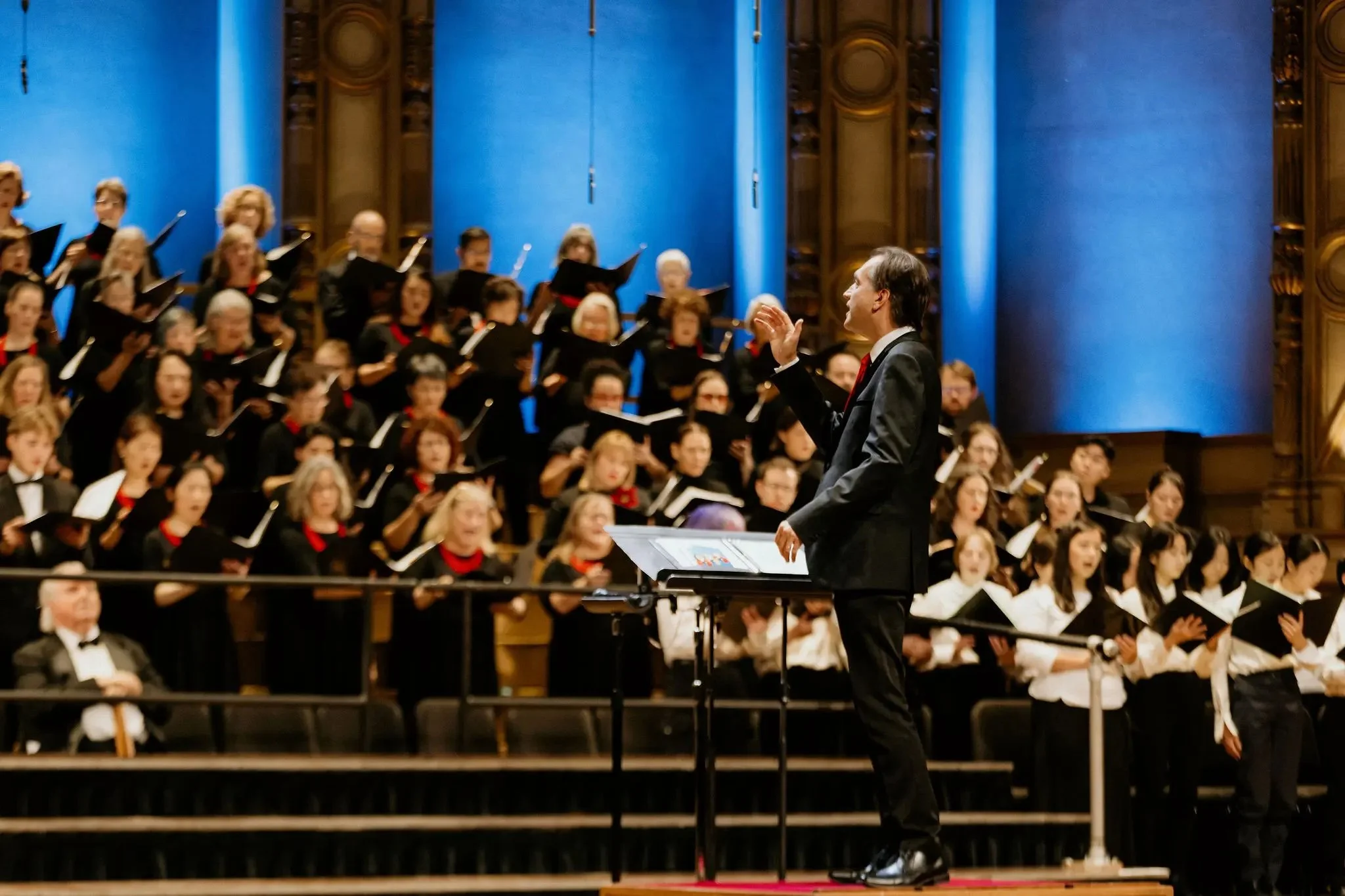Vancouver musical community celebrates prolific composer Stephen Chatman's birthday
Concert by Canadian Music Centre, Vancouver Chamber Choir, and the UBC School of Music spans the esteemed award-winning artist’s career
Stephen Chatman. Photo via Chan Centre
Canadian Music Centre and Vancouver Chamber Choir, with special acknowledgment to Vetta Chamber Music, co-present Music on the Point: Stephen Chatman 70th Birthday Celebration on March 6 at 3 pm at the Chan Centre for the Performing Arts. Music on the Point is presented in partnership with the UBC School of Music, UBC Campus + Community Planning (UTown@UBC), and Chan Centre for the Performing Arts.
DECORATED VANCOUVER COMPOSER Stephen Chatman has been celebrating a milestone birthday for some two years now—sort of. One of the country’s most prominent composers with multiple Juno nominations to his name and a member of the Order of Canada, the Minnesota native was a professor and head of composition at the University of British Columbia School of Music, wrapping up a 45-year teaching career in the summer of 2021. As a way to honour him and his extraordinary contributions to music nationally and internationally, the Canadian Music Centre, Vancouver Chamber Choir, and UBC School of Music joined forces for a concert called Music on the Point: Stephen Chatman 70th Birthday Celebration. Originally scheduled for March 2020, it was postponed due to the pandemic. It is finally taking place on March 6.
“I’ve been 70 for two years now,” Chatman says with a laugh on the line from the Vancouver home he shares with his wife and collaborator, writer-musician Tara Wohlberg. “Retirement is fun. I’m enjoying it. I haven’t run out of things to do.”
That’s an understatement. Chatman is finishing up a commission for Ventus Machina, a woodwind quintet in New Brunswick, and has several piano pieces, songs, and choral compositions in the works. His prolific output is a continuation of a remarkable career during which he has become one of Canada’s most versatile and frequently performed composers, with the American Record Guide describing his work as “bright, expressive, eminently accessible fare that's easy on the ear and good for the soul”.
Stephen Chatman. Photo via UBC
Having grown up in a musical family—his father was a fine pianist, and live classical chamber music often took place in the family’s home—Chatman started piano lessons at age five and was eight when he started composing for piano (and occasionally recorder). In the late 1960s, he studied at Oberlin College Conservatory and went to graduate school at the University of Michigan.
“The pieces I wrote up until I was about 23 or 24 aren’t very good,” Chatman says. “My more mature style started around 1980 or so, when I was 30. I think a real artist—whether it’s literary or visual art or theatre, drama—any real artist loves what he or she is creating. It’s hard to get away from that. Most composers spend a lifetime composing. I think most of them keep going as long as they can.
“Some people talk about ‘old age art’, and I think there’s something to that, if you look to Picasso or Lawren Harris or Stravinsky,” he says. “I like to read about the lives of great composers. Many of them, until the 20th century or into the 20th century, didn’t live past about 60.”
Memorable premieres of his career include major works for large ensembles, including Proud Music of the Storm, Over Thorns to Stars, Earth Songs, Prairie Dawn, A Song of Joys, and Magnificat. Then there are especially personal highlights, such as 1986’s Crimson Dream, which has been performed by about a dozen professional orchestras all over the world, and Tara’s Dream (1999), which has also been performed globally. There’s something about the idea of fantasy that inspires him.
“In a dream anything can happen,” he says. “In both of these dream pieces there’s a mixture of styles. In Tara’s Dream there’s a nightmare section that’s sort of Stravinsky-like; and a waltz that comes and goes, which is combined with this ballroom scene with ragtime dancing; and simultaneously one hears what sounds like a Mozart piano concerto, which is original, a juxtaposition of these various styles and scenes—which can happen in a dream because nothing really makes sense. I’m sort of fascinated with multiple styles, sometimes even within the same piece or from movement to movement.”
When he began teaching at UBC in 1976, Chatman was the youngest member of the faculty. In the 1960s and ’70s, he was influenced by avant-garde movements, his modernist leanings later evolving to tonal, or traditional, choral music and complex, eclectic, polytonal instrumental music. Of the latter, he describes his style as highly virtuosic, extremely difficult “contemporary-art music”. Known also for pedagogical piano music, he has scores of pieces published in Royal Conservatory of Music syllabus and in the Stephen Chatman Library series.
He has received numerous composition awards, including Western Canadian Music Awards’ Classical Composition of the Year, SOCAN Jan V. Matejcek New Classical Music Award, three BMI Awards out of New York, the Dorothy Somerset Award, and the Charles Ives Scholarship from the American Academy of Arts and Letters. He is the only Canadian ever to be short-listed for London’s BBC Masterprize. Several volumes of his works have been recorded on Centrediscs.
“The orchestral music I’ve written are pieces that I think are important, at least to me,” Chatman says. “There are also some choir and orchestra pieces, some fairly substantial ones that have been performed more than once or twice—these days in classical music, most new works are premiered and many of them fall by the wayside and are never performed a second or third time. Especially a large work, say an opera or an orchestra work or a choir and orchestra work, if there are multiple performances of those pieces it’s fairly meaningful. There are only so many orchestras in the world, and their programming is limited, and they don’t necessarily perform a lot of contemporary music. If they do, it’s usually commissioned pieces that are premiered rather than pieces that are pre-existing. There are exceptions to that, but generally the opportunities just aren’t there.”
Among his former composition students are Mark Armanini, Arne Eigenfeldt, John Estacio, Peter Hatch, Melissa Hui, John Korsrud, Christopher Kovarik, Jacqueline Leggatt, Grace Lee, Jocelyn Morlock, Larry Nickel, Brian Tate, and Rui-shi Zhuo, to name just a few.
“I find that composition students are open-minded, and that hasn’t changed,” says Chatman, who has served on many Canada Council for the Arts juries and national student composition contest juries. “They are open to all sorts of concepts and ideas and styles and aesthetics.”
For Music on the Point: Stephen Chatman’s 70th Birthday Celebration, pieces span his career, some going back decades and one having its world premiere, Etudes Book 1 for Piano, being performed by Patricia Hoy. She will also perform 2009’s Shimmering Wings from Preludes for Piano, Book 4 and Nocturne from Preludes for Piano, Book 4.
Joan Blackman (violin) and Jane Hayes (piano) will perform In Memoriam Harry Adaskin (1995). Vetta Music will perform To the Garden the World (2006, featuring Julia Nolan, saxophone and Jane Hayes, piano) and Trio (2001), among several other works.
Among the pieces being performed by Vancouver Chamber Choir are “There Will be Rest” from It Will Not Change (2012, with Julia Nolan, soprano sax); Remember (1999); A Magical Machine (2008); Lie Still (2019); How Sweet and Fair (2004, with Anne Katherine Coope, clarinet); and many more.
“The collaboration between composer Stephen Chatman and the Vancouver Chamber Choir has lasted decades,” VCC artistic director Kari Turunen tells Stir. “The choir has commissioned, premiered, or recorded dozens of works from the composer's extensive catalogue of choral music. Stephen Chatman is without a doubt one of the most prolific Canadian choral composers of the last few decades. His skillful and accessible music is a delight to both performers and audiences.”
As Chatman looks ahead, he’s planning on writing an Etudes Book 2 for Piano. He and Wohlberg, a librettist and lyricist, hope to collaborate more; they wrote the 2016 comic opera Choir Practice together. She writes lines that he plays around with, with Wohlberg getting the last say on the text. Retirement has allowed him more time to cook (he’s especially proud of a Southern macaroni and cheese) and the two hope to travel.
A past president of Vancouver New Music and a member of the Canadian League of Composers, SOCAN, the Society of Composers, Inc., and the American Music Center, Chatman says his process has solidified over the years. He still uses pencil and paper to compose, writing things down in his studio then playing them on a synthesizer or one of the couple’s two pianos, a Steinway and a Bechstein (Wohlberg also teaches piano). He finds beginning a piece the hardest thing to do.
“Once you have an idea, you have something; it’s easier to take that idea and do something with it,” he says. “In any art you’re trying to use your technique and imagination to create something substantial from very little materials. You think of the Beethoven 5th Symphony based on four notes. As I get older, my process has matured. Technique is developed, and imagination is something else. I like to think I’m imaginative. Children have lots of imagination; adults, not necessarily. Sometimes imagination and creativity are not emphasized enough in society.”
For more information, see Chan Centre.
.


